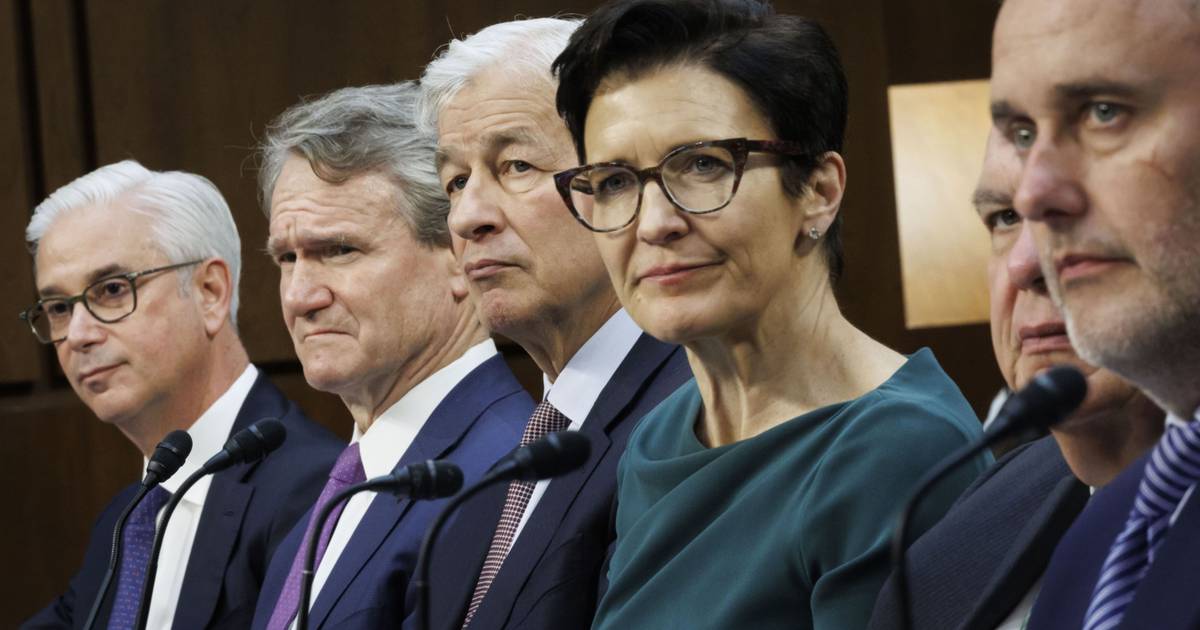The directors of JPMorgan, Bank of America, Citigroup and Goldman Sachs, the largest banks on Wall Street, dealt the most direct blow yet to the Joe Biden administration’s plans to force them to reserve more capital to cushion losses.
The bankers went on the attack on Capitol Hill, after more than a decade of playing defense in the Senate Banking Committee’s oversight hearings, and six months after the collapse of several entities will generate concern for the health of the financial industry. One by one, executives told lawmakers that their institutions were safe and that Americans would end up paying the price if stricter rules were enacted.
The opposition refers to rules that were proposed in July by the Federal Reserve, the Federal Deposit Insurance Corporation and the Office of the Comptroller of the Currency, which consisted of requiring large banks to increase their capital reserves by almost 20 percent to ensure they can survive another crisis. The Fed and other regulators say changes can help avoid turbulence such as the bankruptcies that some regional banks suffered this year, an issue that executives refute.
The bankers’ arguments have already convinced many Republicans. At the hearing this Wednesday, December 6, Mike Rounds, who represents South Dakota, asked bank CEOs to raise their hands if they believed the proposed regulations would negatively affect first-time home buyers, to people saving for retirementto farmers, ranchers and small business owners.
All CEOs raised their hands and gave examples of situations in which the proposed rules could increase prices or would reduce the availability of loans.
JPMorgan CEO Jamie Dimon also tried to convince lawmakers that the average citizen would pay the price for the cumulative effect of the proposed rules.
“Your local affordable housing or Montana pension plan,” Dimon said. “All of these things will leak out and become more expensive.”
The rules are “punitive for economic growth” and do not adequately consider the risks, added David Solomon of Goldman Sachs. Citigroup CEO Jane Fraser, Morgan Stanley’s James Gorman and Wells Fargo’s Charlie Scharf also made similar arguments.
The hearing was less combative than in the past, even Elizabeth Warren, D-Massachusetts, who is one of the harshest critics of banks, focused her questions on whether the cryptocurrency industry should adhere to the same anti-money laundering rules. just as banks do. The CEOs agreed with her.
Separately, Ohio Republican JD Vance presented a printed chart titled ‘Actions and Commitments of America’s 8 Global Systemically Important Banks’ and said big banks have often had support from Republicans when it came to opposing onerous regulations, and warned that such support would be harder to come by if companies continued to influence issues such as voter ID laws and fossil fuel policies.

